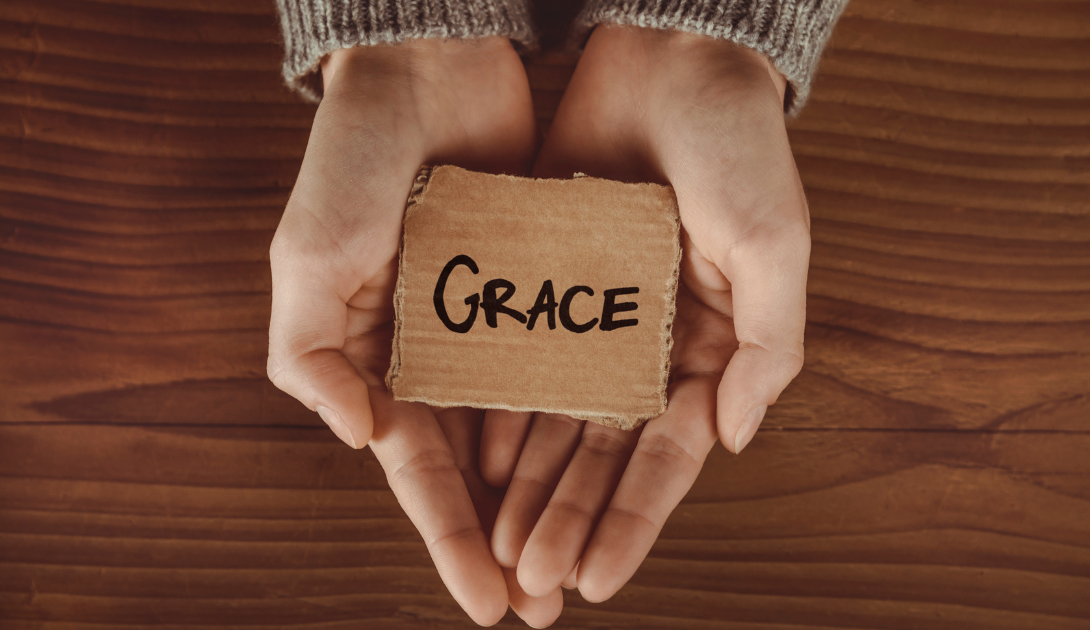Do you ever find yourself wrestling with regrets or stuck replaying past mistakes in your mind? We’ve all been there.
We often struggle with issues related to self-forgiveness, or a lack thereof, without realizing it.
The concept of self-forgiveness, while extremely important to our personal growth, is often undervalued for its ability to help us heal and move forward in life with less mental and emotional baggage than we would have otherwise been able to.
In this blog post, we will examine the concept of self-forgiveness, exploring its significance, benefits, and practical strategies for implementing this liberating practice in your life.
Whether you have struggled with self-forgiveness or are currently facing the weight of negative self-talk, this article aims to encourage and empower you to release negative thought patterns and embrace self-compassion and personal freedom.
Let’s get started.
What is Self-Forgiveness?

Self-forgiveness is showing compassion and letting go of self-condemnation, regret, and guilt associated with your past actions or choices.
It involves acknowledging that you are human and susceptible to making mistakes and then granting yourself the same grace and understanding that you would likely extend to others.
Self-forgiveness is not about denying or minimizing your mistakes but owning them with empathy, taking responsibility, and choosing to learn and grow from them.
The self-forgiveness process is transformative, helping you work through difficult emotions, release self-judgment, and ultimately holds the key to your emotional well-being and personal growth.
Self-Forgiveness vs. Self-Blame and Self-Criticism
Self-forgiveness is often mistaken as an excuse for one’s actions or a way to avoid personal accountability. However, it is important to differentiate self-forgiveness from self-blame and self-criticism, as they are fundamentally different approaches to dealing with our shortcomings.
Self-blame is a destructive and unproductive mindset that involves excessively holding yourself responsible for perceived failures or mistakes. It tends to focus on punishment rather than growth, leading to feelings of shame, low self-worth, and a cycle of self-destructive behaviors.
On the other hand, self-criticism involves a harsh and judgmental inner dialogue that reinforces negative beliefs about yourself, undermining self-esteem and delaying personal development.
Self-forgiveness, however, takes a compassionate and constructive approach. It acknowledges the wrongdoings or mistakes without self-condemnation, allowing space for understanding, growth, and healing.
Self-forgiveness encourages self-reflection, accountability, and a commitment to positive change, empowering you to free yourself of the negative thoughts associated with self-blame and self-criticism.
Benefits of Self-Forgiveness

There are several psychological and emotional benefits of practicing self-forgiveness that can significantly enhance your overall well-being and quality of life. Here are a few key benefits worth considering:
Emotional Healing
Self-forgiveness allows you to release pent-up emotions and heal emotional wounds caused by self-blame and guilt. It promotes self-compassion, reducing shame, anger, and resentment towards yourself.
Improved Self-Esteem
By embracing self-forgiveness, you cultivate self-acceptance and nurture a positive self-image. This, in turn, increases self-esteem and self-worth, empowering you to pursue your goals with confidence and resilience.
Stress Reduction
Holding onto self-blame and regret can impact your physical health, creating chronic stress and anxiety. Self-forgiveness alleviates this burden, reducing emotional distress and promoting inner peace and calm.
Enhanced Relationships
When you forgive yourself, you become more open to forgiveness and empathy towards others. This fosters healthier and more meaningful connections as you free yourself of the resentment and judgment that can strain relationships.
Personal Growth and Resilience
Self-forgiveness paves the way for personal growth, encouraging learning from mistakes and making positive changes.
It instills resilience, allowing you to bounce back from setbacks and embrace new opportunities for growth and transformation.
Barriers to Self-Forgiveness

Barriers to self-forgiveness can present differently, hindering your ability to embrace self-compassion and let go of past missteps.
One significant hurdle is the overwhelming burden of shame and guilt. These emotions can consume you, making it difficult to release yourself from self-condemnation.
Unrealistic expectations also pose a barrier. When you set impossibly high standards for yourself and inevitably fall short, it becomes challenging to forgive your perceived failures.
Society’s pressure, personal beliefs, and comparisons to others can intensify this struggle.
Additionally, holding onto resentment towards yourself creates an enduring obstacle. Forgiving others may be easier than extending that forgiveness inward as you replay past events and blame yourself for any pain you may have caused.
However, to find self-forgiveness, you’ll have to consciously do the work to free yourself of these barriers, which requires acknowledging your humanness, embracing imperfections, and letting go of resentment.
6 Ways to Practice Self-Forgiveness

Cultivating self-forgiveness requires courage, vulnerability, and a willingness to let go of past hurts. Below are six tips to help you overcome negative emotions and foster genuine self-forgiveness.
Self-Reflect
The process of self-forgiveness begins with self-reflection. Take time to assess your actions, intentions, and the emotions arising from them.
Reflect on the underlying beliefs or experiences that may have contributed to the mistake or self-blame.
By gaining insight into the deeper layers of your subconscious, you can start to understand and acknowledge the complexities of who you are authentically.
Accept Imperfections and Mistakes
Nobody is perfect, and that includes you. Accept responsibility and embrace the fact that making mistakes is a natural part of the human experience.
Recognize that your actions or decisions were made with the information and resources available at that time, and consider the value that comes from your imperfections and the lessons learned from your mistakes, as they can create space for genuine self-forgiveness.
Practice Self-Compassion
Self-compassion is a vital component of self-forgiveness. Treat yourself with the same kindness, understanding, and grace you would extend to a friend or loved one.
Accept your pain, validate your emotions, and offer yourself words of comfort and encouragement. Remember, you deserve forgiveness and compassion just as much as anyone else.
Release Guilt and Shame
Guilt and shame are heavy burdens that restrict the self-forgiveness process.
It’s essential to recognize that holding onto these emotions serves no purpose other than perpetuating self-blame and stunting your growth.
Allow yourself to let go of the guilt and shame, understanding that they do not define you. Instead, focus on the present moment and the potential for positive change.
Make Amends and Learn from Mistakes
While self-forgiveness is essential, it doesn’t absolve us from taking responsibility for our actions. If possible, make amends or seek a resolution where appropriate.
Learn from your mistakes and commit to personal growth. By demonstrating a genuine desire to improve and evolve, you can transform past mistakes into valuable lessons for the future.
Practice Mindfulness and Gratitude
Practicing mindfulness and gratitude can significantly support the process of self-forgiveness. Mindfulness allows you to observe your thoughts and emotions without judgment, promoting a sense of detachment from being overly critical of yourself.
Gratitude helps to shift your focus towards the positive aspects of your life, fostering a sense of appreciation and self-worth. By incorporating these practices into your daily routine, you can develop a nurturing environment for self-forgiveness.
Final Thoughts

In conclusion, self-forgiveness is a powerful tool for personal development, as letting go of the past and embracing the healing process allows you to dream bigger, take risks, and pursue your passions wholeheartedly.
Instead of being held captive by the shackles of past mistakes, you can embrace your imperfections and use them as stepping stones toward personal transformation. While it requires courage and vulnerability, the rewards are immeasurable.
It’s also important to remember that self-forgiveness is not a one-time event but an ongoing process. You must be patient and gentle with yourself, recognizing that healing takes time.
There will be days when you’re harder on yourself than you should be or self-doubt creeps in. In those moments, you must extend the same grace and compassion that you would offer to others, being conscious that we are all deserving of forgiveness and capable of creating a more positive future for ourselves.





